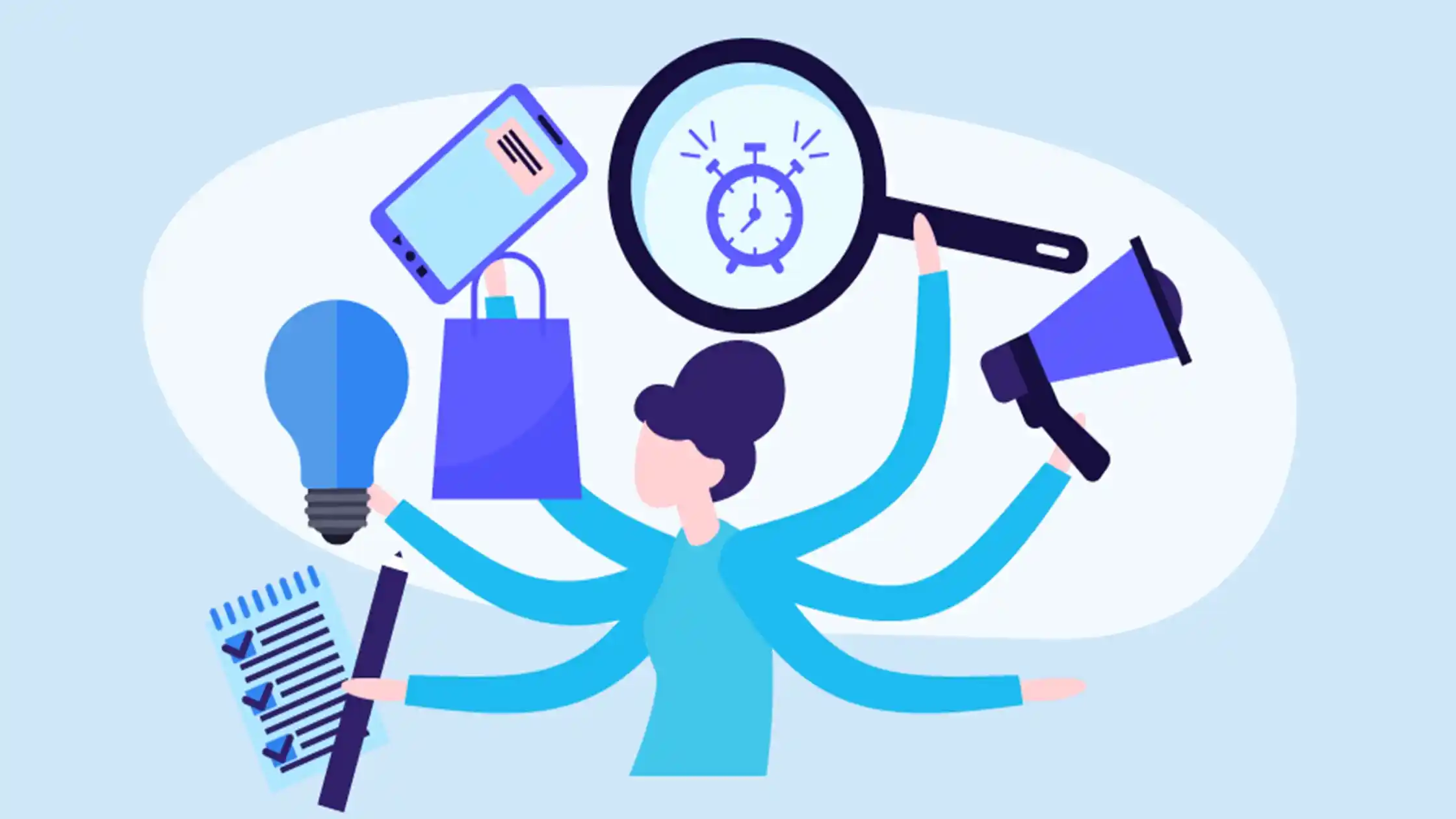The Artificial Intelligence (AI) advancement has ushered in a new era of possibilities, profoundly impacting various aspects of our lives. One area that stands to be significantly transformed by AI is the future of work. AI tools have gained prominence across industries, revolutionizing the workplace and redefining the nature of jobs. In this blog, you all will get to know the profound impact of AI tools on the future of work, examining the opportunities they present and the challenges they bring.
AI tools are reshaping how we work, from streamlining processes and increasing efficiency to enhancing decision-making and fostering personalized learning. However, as we embrace these advancements, addressing ethical considerations and ensuring responsible use is crucial. By understanding the potential of AI tools in HRMS software, we can navigate the future of work with foresight and harness their capabilities to drive innovation and productivity.
5 Ways In Which AI Tools Shape Future for HR Professionals
-
Automation and Efficiency
One of the primary ways AI tools are shaping the future of work is through automation. AI-powered systems and algorithms can perform repetitive, time-consuming tasks with greater accuracy and efficiency, freeing human workers to focus on higher-value activities. From data entry and analysis to customer service and manufacturing, AI tools streamline operations and drive productivity. For instance, chatbots can handle customer inquiries, reducing the workload on support teams. Robotic Process Automation (RPA) can automate routine tasks, enabling employees to engage in more creative and strategic endeavours.
-
Enhanced Decision-Making
AI tools are also revolutionising HR decision-making processes in the workplace. AI algorithms provide insights and recommendations by analysing big data and identifying patterns to work upon.
This empowers human resource leaders to make more informed and data-driven decisions. The decision-making is faster when the AI is integrated with smart human resource management software in India.
AI tools can assist in market research, financial analysis, risk assessment, and talent acquisition. By leveraging AI-powered analytics, organisations can gain a competitive edge. This helps them adapt to the recent changes in the market conditions, and drive innovation.
-
Personalised Learning and Development
The future of work involves continuous learning and upskilling to keep pace with technological advancements. AI tools play a crucial role in enabling personalized learning experiences for employees. By analysing individual learning patterns and preferences, AI-powered systems can deliver targeted and adaptive learning content. Virtual reality and augmented reality tech solutions powered by AI offer immersive and interactive training environments. This facilitates skill development, knowledge retention, and career growth, preparing workers for the jobs of tomorrow.
-
Collaborative AI and Human Interaction
Contrary to popular concerns, AI tools are not replacing humans but augmenting their capabilities.
Collaborative AI systems work alongside humans, complementing their skills and expertise. For instance, AI-powered virtual assistants can help schedule meetings, organise tasks, and improve productivity.
Additionally, AI tools can enhance communication and collaboration by facilitating real-time language translation and sentiment analysis. By leveraging AI tools, teams can collaborate more effectively, regardless of geographical boundaries or language barriers.
-
Ethical Considerations and Challenges
While the impact of AI tools on the future of work is overwhelmingly positive, it also raises ethical concerns and challenges. Ensuring transparency, accountability, and fairness in AI algorithms and decision-making processes is critical.
Organisations must address issues related to bias, privacy, and data security. Additionally, there is a need for comprehensive policies to govern the ethical use of AI tools in the workplace. It is crucial to balance AI benefits and the protection of human rights and values.
Conclusion
AI tools can potentially reshape the future of work for HR professionals and their teams in remarkable ways. From automation and efficiency gains to enhanced decision-making and personalised learning, these tools offer numerous opportunities for organisations and their workers.
However, addressing the ethical considerations and challenges associated with the widespread adoption of AI tools is vital. By harnessing AI power responsibly, we can create a future for humans and modern HR tech solutions collaborate harmoniously, driving innovation and prosperity in the workplace.
The key lies in embracing human resource management tools as a catalyst for positive change and leveraging them to unlock the full potential of the hired talent.

